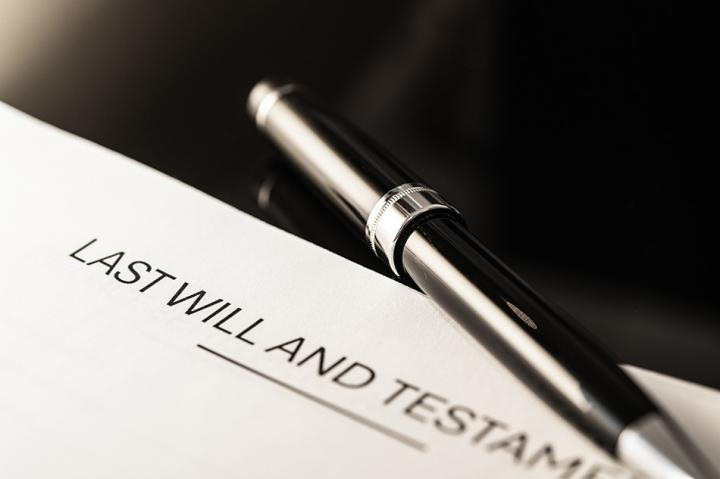Intestacy: What happens if you die without a Will?

When someone dies without leaving a valid Will, they are said to have died intestate.
In England and Wales, there is a set of fixed rules for how an intestate estate is distributed, but these rules may not necessarily reflect what the deceased would have wanted.
Leah Duffield, partner in our private client team, explains what it means to die intestate, how the law handles an estate in such cases, and why it’s important to have a valid Will in place.
What are the rules surrounding intestacy?
Intestacy occurs when a person dies without leaving a valid Will, or when their Will doesn’t deal with all of their assets (known as partial intestacy). In these cases, the law steps in to determine who inherits the deceased's estate.
The intestacy rules follow a strict hierarchy of relatives. The key principle is that only close blood relatives and legally married spouses or civil partners are entitled to inherit.
If the deceased was married or in a civil partnership and they had children, then the spouse or civil partner receives:
- All personal belongings, and;
- The first £322,000 of the estate and half of the remaining estate.
The rest of the estate passes equally between children.
If the deceased was married or in a civil partnership and they had no children, then the spouse or civil partner inherits the entire estate.
What happens in the absence of a spouse or civil partner?
If there is no spouse or civil partner, then the estate is distributed in the following order of priority:
- Children (or their descendants if a child has died).
- Parents.
- Siblings or their descendants.
- Half-siblings and their descendants.
- Grandparents.
- Aunts and uncles or their descendants.
- If no eligible relatives can be found, the estate passes to the Crown.
A very challenging element of the above rules is that any minor beneficiaries (under the age of 18) inherit any share of the estate outright. The funds will be held on trust for them until they reach the age of 18.
There is no option to extend this until the beneficiaries are older. This means that large amounts of money can be given to beneficiaries on the day they turn 18, even when they may not have the maturity and confidence to deal with a large inheritance at a relatively young age.
It is important to note that unmarried partners do not automatically inherit, no matter how long they lived together, and stepchildren are not entitled to inherit unless legally adopted, even if they are treated as a biological child.
How can you avoid intestacy?
Disagreements often arise over what the deceased “would have wanted”, leading to family disputes and upset.
Furthermore, individuals who were financially reliant on the deceased who are left vulnerable may bring a claim under the Inheritance (Provision for Family and Dependants) Act 1975 incurring legal fees for the estate in resolving the claim.
The best way to avoid the uncertainty and stress of intestacy is to make a valid Will. This ensures that your wishes are carried out, your loved ones are protected, and disputes are minimised. If you already have a Will, it is important to review it regularly, especially after any major life changes.
If your Will has been executed at home, it is important to check that it has been executed correctly and according to the law, as an incorrectly executed Will is likely to be invalid.
Dying without a Will leaves your estate in the hands of the law. The rules of intestacy are rigid and may not align with your personal relationships or wishes.
Whether you’re single, married, or in a long-term partnership, making a Will is a crucial step in protecting the people you care about most.
A professionally drafted Will can provide peace of mind that your Will reflects your instructions and is executed correctly.
For further information, please contact Leah using 0191 211 7790 or [email protected].
Intestacy occurs when a person dies without leaving a valid Will, or when their Will doesn’t deal with all of their assets (known as partial intestacy).
The best way to avoid the uncertainty and stress of intestacy is to make a valid Will. This ensures that your wishes are carried out, your loved ones are protected, and disputes are minimised. If you already have a Will, it is important to review it regularly, especially after any major life changes.
